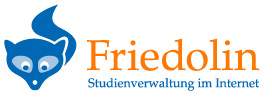| Name des Moduls | [350250] Multi-Scale Simulation and Computational Materials Science II | Bezeichnung des Moduls | MMC W005 |
| Studiengang | [733] - Chemistry of Materials | ECTS Punkte | 5 |
| Arbeitsaufwand für Selbststudium | 90 | Häufigkeit des Angebotes (Modulturnus) | jedes 2. Semester (ab Wintersemester) |
| Arbeitsaufwand in Präsenzstunden | 60 | Dauer des Moduls | 1 |
| Arbeitsaufwand Summe (Workload) | 150 | ||
| Modul-Verantwortliche/r | Prof. Dr-Ing. Lothar Wondraczek, Dr Zhiwen Pan |
| Voraussetzung für die Vergabe von Leistungspunkten (Prüfungsform) | Oral presentation of a mini project (30 min, 100%) |
| Zusätzliche Informationen zum Modul | If „Multi-Scale Simulation and Computational Materials Science II” is chosen, then Multi-Scale Simulation and Computational Materials Science I” has to be chosen as well. |
| Empfohlene Literatur | Will be recommended at the beginning of the module. |
| Unterrichtssprache | English |
| Voraussetzung für die Zulassung zum Modul | 733 MSc Chemistry of Materials: none |
| Empfohlene bzw. erwartete Vorkenntnisse | 733 MSc Chemistry of Materials: none |
| Verwendbarkeit (Voraussetzung wofür) | 733 MSc Chemistry of Materials: Module required to complete master’s thesis |
| Art des Moduls (Pflicht-, Wahlpflicht- oder Wahlmodul) | 733 MSc Chemistry of Materials: Elective module in „required spezcialisation” |
| Zusammensetzung des Moduls / Lehrformen (V, Ü, S, Praktikum, …) | Lecture (2 SWS), seminar (1 SWS), laboratory practical (1 SWS) |
| Inhalte | In this module, mesoscale and larger-scale simulation approaches will be introduced and applied in a variety of real-world examples focusing on the area of materials synthesis, and processing. This will start with deviating relevant equations of state for use in finite element simulation methods. Applications will deal with problems of diffusion, thermal transport, fluid flow, reaction kinetics, optics and others. |
| Lern- und Qualifikationsziele | Ability to apply mesoscale simulation techniques to problems in materials chemistry, synthesis, and large-scale processing, in particular FEM methods; |
| Voraussetzung für die Zulassung zur Modulprüfung | none |


